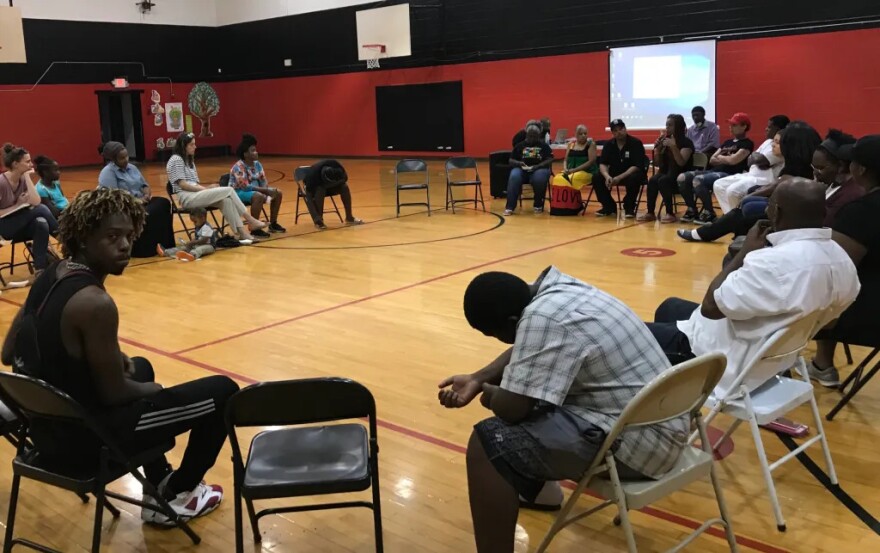The Tennessee Black Caucus is making its way across the state as part of a listening tour that will allow constituents to guide legislative proposals for 2023. Lawmakers have already held town halls in Knoxville, Chattanooga and Nashville. They’ll be heading to Memphis later this month, with additional stops being planned for July.
The TBCSL kicks off its statewide tour with stops in Knoxville, Chattanooga, Nashville and Memphis in June! Town hall meetings are planned at every stop & there are plans to add more stops in July! The purpose of the tour is to hear from citizens across(1/3) pic.twitter.com/QPbbiqBbS6
— Tennessee Black Caucus (@TNblackcaucus) May 31, 2022
“As a state legislator, I may feel that I’m doing something the correct way,” says Democratic Rep. Vincent Dixie, “but if I’m listening to my constituents tell me what they want, I can make a better bill.”
Dixie, who chairs the House Democratic Caucus, says the discussion will be used to guide what laws and investments are proposed for communities during the next legislative session. Lawmakers will also be looking to hear from Nashville residents to find commonalities affecting other people across the state, like gun violence.
Taking a one-size-fits-all approach to curb shootings, Dixie says, will never be enough to address the issue. He says there needs to be a focused effort on getting both illegal and some legal firearms out of Tennessee communities.
“What plagues my community, and the Black community, is not the AR-15 and assault rifles,” he tells WPLN News. “We need to ban those, but what plagues my community are illegal guns on the street.”
Dixie plans to sponsor a bill during the new legislative session that will require the state to adopt a handgun registry. It’ll require gun owners to have a registration card that’ll need to be presented when purchasing ammunition for their firearm.
On Monday, Gov. Bill Lee signed an executive order to “harden” schools in response to a shooting at a Texas elementary last month. But Dixie says all the action does is “put thoughts and prayers on a piece of paper.”
To truly address gun violence, Dixie says, the state needs to put money back into communities instead of adopting tough on crime laws. That includes funding violence interrupters, conflict resolution programs, and giving people access to economic opportunities, housing and health care.
Those are all things that Nashville firearms instructor and Middle Tennessee Black Gun Club sergeant-at-arms Denzel Caldwell says are part of the solution to preventing gun violence.
When it comes to gun control advocacy, Caldwell says, many people don’t know how guns work. He says popular calls to lower the capacity of magazines and ban AR-15s are reactionary.
“The reality is the AR-15 is a popular gun in the U.S … It’s a semi-automatic weapon. It’s not what people call an ‘assault rifle,'” Caldwell says. “That’s just a term that people throw around who aren’t really familiar with firearms.”
Reactionary gun control measures, he adds, will only impact people who follow gun laws. Caldwell also says that those measures will disproportionately affect Black gun owners, who are more likely to be policed.
“If you really want to get to the root of the problem, you can’t start at the end of the process,” Caldwell says, “which is the gun violence that actually occurs. You have to start with the conditions that make that possible.”
There are already more guns than people in the U.S. Caldwell says a more practical solution to curbing shootings would be for the state and federal government to make firearm safety education a requirement for gun ownership. Outside of that, he adds, there needs to be an intentional reshaping of the culture of violence across the country.
“What we’re seeing now, in so many ways, is a reflection of what the U.S. has been doing elsewhere — particularly outside of the borders, but also within our borders as well,” Caldwell says. “We can’t treat it like this isolated thing that’s not connected to these larger things.”




